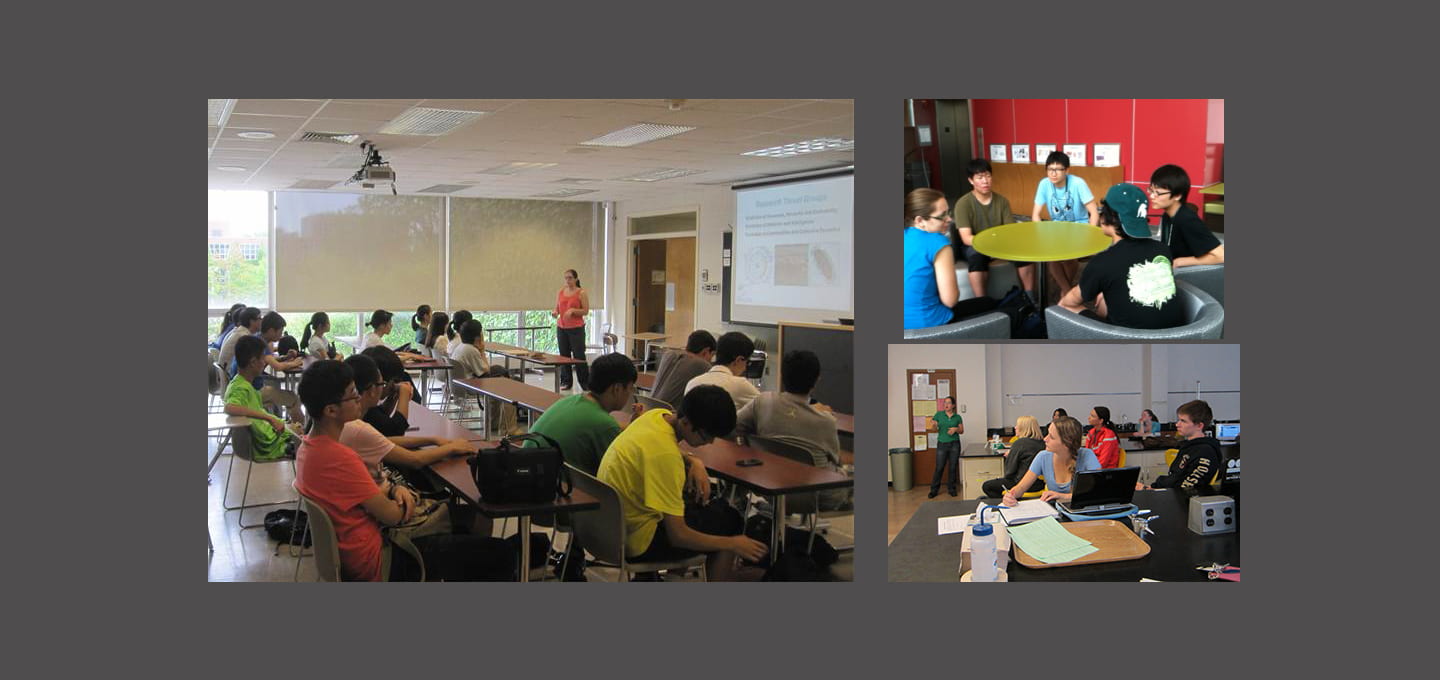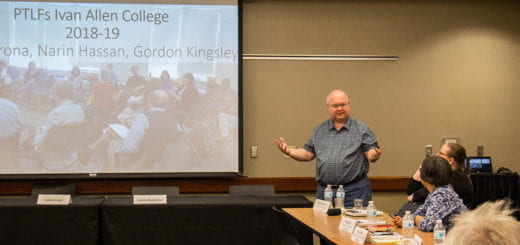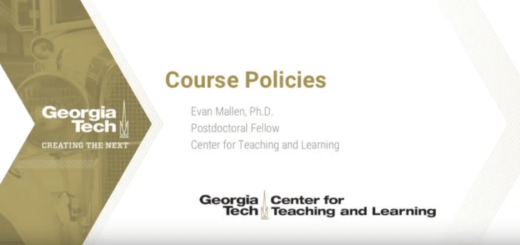Making Biology Relevant to Students’ Lives: Emily Weigel

Dr. Emily Weigel plays a variety of significant roles at Georgia Tech as an instructor, an advisor, and as the internship director within the School of Biological Sciences. “With her dedication to active learning, emphasis on authentic research experiences, and thoughtful mission to help students develop effective study strategies, I believe that Dr. Weigel embodies all the traits associated with excellence in undergraduate education,” states senior academic professional Dr. Shana Kerr.
Since returning to Tech as an academic professional in 2016, Weigel has received many accolades, including most recently the Center for Teaching and Learning’s 2019 Undergraduate Educator Award and the Office of Undergraduate Education’s 2019 Outstanding Undergraduate Academic Advising Faculty Advisor Award. Weigel elicits a high level of understanding and engagement in her students through her innovative teaching strategies and infectious enthusiasm for her work.
Student Engagement
The best way to foster student engagement within the classroom, according to Dr. Weigel, is to make the content you teach relevant to what’s going on in the world. “You have to make things relevant,” she  states. “If you don’t make it relevant to what they’re seeing on the news, to what they’re experiencing, to their path every day, then it’s just another thing to do.”
states. “If you don’t make it relevant to what they’re seeing on the news, to what they’re experiencing, to their path every day, then it’s just another thing to do.”
Students connect the information they learn to the framework they already have in their minds, and it’s much easier for them to do this if the content feels relevant to their lives. Weigel often discusses things currently happening within the real world that she thinks will interest her students and connects it to the concepts she’s teaching in the classroom. One student in her course instructor observation survey for Organismal Biology stated, “She would often ask the class what we cared to know about and would spend time there to further inspire students to enjoy the wonders of biology.”
Dr. Weigel also has students participate in authentic science practices, such as the multi-week field lab where they collect biological and chemical data at Proctor Creek. Students use this data to compare the health of the stream at different sites. They then complete reflections to connect the building activity in Atlanta to the ecological effects that occur as a result. Their work contributes to the research efforts of multiple environmental programs, including the US Fish and Wildlife and Environmental Protection Agency’s water quality management program. Taking students to Proctor Creek not only gives them an opportunity to put the information they learn in class into real-world context, but it also illustrates to them how deeply connected everything is within the environment.
Weigel says, “My favorite teaching moments have been just watching students realize they can help the world in ways that they are passionate with ecology and showing them how everything in the environment is intrinsically connected.”
Teaching and Comprehension Strategies
Dr. Weigel employs a wide variety of teaching strategies and assessments to encourage and measure students’ mastery of course content throughout the semester.
One especially distinctive strategy she employs is her flipped classroom approach. This allows students to become familiar with course content prior to discussing it in lecture, then dig deeper into the content through in-class activities, and then complete homework assignments on the content after class. This process allows students to become familiar with content on their own, get any questions they have answered alongside their peers, and examine their mastery of the content after.
Weigel also consistently has students do concept inventories, banks of questions specific to certain topics that are developed with specific competencies in mind, throughout the semester. These measure concept comprehension as it compares to the national level of understanding, peer level of understanding, and their own individual understanding of content. This helps her determine if she needs to modify something about her teaching or if certain students need more assistance in understanding the content. In her course instructor observation surveys, many students praised her for being easy to approach with their questions and for being incredibly helpful in improving their success within the course. One student comment stated, “After doing horribly on an exam, she was able to meet with me and discuss what I did/where I went wrong and then gave me useful pointers as to how I could do better next time, which all helped me to improve on every exam thereafter.”
She also puts great emphasis on meta-cognition and believes it’s important for students to examine the way they process content they’re learning. “I think it’s important to look at how students are greeting the information they’re learning,” Dr. Weigel says. “A student can be competent and comprehensive in content but hate what they’re learning and create mental roadblocks as a result.” Understanding how one thinks and processes data can help students to develop study methods that work well for them and better encode new content into their memory.
Helping Students Explore Interests
Emily Weigel states, “In [both teaching and advising], you have the goal of helping the student being successful. In teaching, specific benchmarks are what define success. For advising, it’s helping the student figure out what their goal is and how to meet it.” Weigel became an advisor, instructor, and internship director for the School of Biological Sciences because she was interested in exploring many different areas of research within the field and wanted to help students do the same. She found playing a wider variety of roles within the school to be a great way to encourage students to explore all the opportunities the field offers and to learn which topics they were most interested in pursuing.
She also suggests that students take advantage of online resources. Doing small things like following professors on social media can introduce students to more information about the biological sciences and learn more about what might interest students that can be explored at the university.
In Dr. Weigel’s intro classes, she tries to get students to think about the content of the course that they found the most interesting. She also suggests reaching out to upperclassmen who are in the biology field. She says, “Unfortunately, most students don’t get to truly go in depth in their specific topic of interests until they’re a few years in, so I encourage them to reach out to upperclassmen in their fields of interest and see what their experiences were to get a better idea if they are interested in the same.”
Emily Weigel is driven by a desire to see her students succeed and to see them find joy in the journey to success, remarking, “I worry that some of the students get held up by the grades, which are important, but when that blocks the joy of learning, I think it robs them of something.” While being successful is important, finding something to be enthusiastic about as you work towards success is equally so. Dr. Weigel wishes for all of her students to find such an enthusiasm within her classroom.




